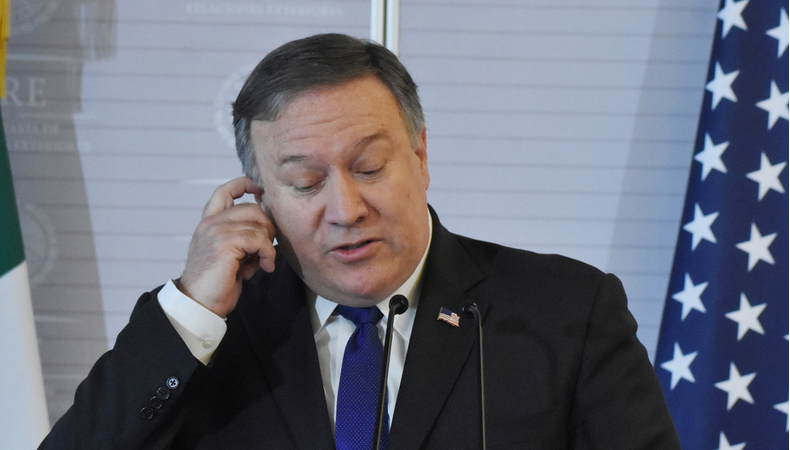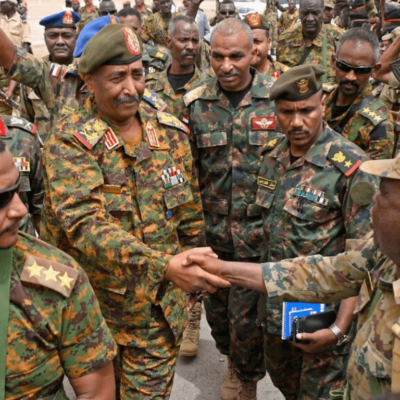Washington introduces new sanctions against Syrian regime

Five years ago, the United Nations Security Council unanimously adopted resolution 2254, firmly defining the only way to a lasting resolution of the Syrian conflict. The U.S. Secretary of State Mike Pompeo stated last Friday. The United States and the vast majority of the international community remain committed to this dignified plan to end the suffering of the Syrian people. Mike Pompeo reiterated that the Assad regime, supported by its promoters and allies, however, refuses to end its futile and brutal war against the Syrian population, blocking efforts to reach a political solution.
The US State Department imposed sanctions on Bashar al-Assad’s wife Asma al-Assad for impeding efforts to promote political resolution of the Syrian conflict under Section 2 of Executive Order 13894. Asma al-Assad spearheaded efforts on behalf of the regime to consolidate economic and political power, including using its so-called charities and civil society organizations, the State Department highlighted.
“In addition, we are sanctioning several members of Asma al-Assad’s family, including Fawaz Akhras, Sahar OtriAkhras, Firas al Akhras and EyadAkhras under Section 2 (a) (ii) of EO 13894. The Assad and Akhras families have accumulated their illicit wealth at the expense of the Syrian people through their control over a vast illicit network with connections in Europe, the Gulf and elsewhere.”The statement adds, confirming that in the meantime, the Syrian people continue to wait in long lines for bread, fuel, and medicine as the regime chooses to cut subsidies for these essential items Syrians badly need.
Also, the US Treasury Department imposed sanctions on the Central Bank of Syria, as well as Lina al-Kinayeh, one of Assad’s key advisors, her husband, Syrian lawmaker Mohammed Masouti, and several regime-affiliated companies. “The United States will continue to seek accountability for those who prolong this conflict.” The note continues, reaffirming that only the Syrian people will decide the future of Syria.
Read more : Washington sanctions Tehran for FBI agent disappearance
To support them, the United States claimedto have provided over $ 12.2 billion in humanitarian assistance since the conflict began, and it will continue to exert pressure on the Assad regime until there is irreversible progress towards a political transition as called by United Nation Security Council resolutions.“There must a national ceasefire, responsibility for acts committed during the conflict, free and fair elections under a new constitution, as well as the release of all persons arbitrarily detained. This is the only way towards a peaceful future for the Syrian people”. The head of US diplomacy concluded.
On December 17, 2020, Russian Foreign Minister Sergey Lavrov said that Russia – a primary supporter of the Assad regime – has provided 100,000 tons of wheat to Syria as humanitarian aid, since early 2020 and plans to ship more, according to Interfax news agency. The Syrian economy has been severely tested by a complex and multifaceted conflict. Now in its 10th year, as well as by the financial crisis in neighboring Lebanon. As reported by Reuters, Russia, one of the world’s largest wheat exporters, has supported Syrian President Bashar al Assad but his official customs data show no significant grain supplies to Syria.
“In terms of rebuilding the Syrian economy, we have already made very significant decisions in recent weeks that will significantly improve Syria’s ability to organize this work in a systematic way,” Lavrov said. He also unveiled that concrete action on the matter is currently under discussion, without providing further details. Syria needs to import between 180,000 and 200,000 tons of wheat per month, its economy minister said last October, accusing the militias of preventing farmers from selling their wheat to the central state.
The Turkish news-agency, Anadolu, reported a few days ago that the Istanbul-based Humanitarian Relief Foundation (IHH) distributed coats and shoes to 4,000 children in the Syrian regions of Idlib and Afrin. Aid has been provided to support children in Syria, where the winter season is very difficult especially for those staying in refugee camps. Idlib is part of an escalation reduction zone based on an agreement between Ankara and Moscow.
AB Türkiye Delegasyonu, Türkiye'deki Mülteciler için Mali Yardım Programı (FRİT) kapsamındaki son sekiz sözleşmeyi bu hafta imzalıyor. #FRIT pic.twitter.com/z3mJNOnisY
— EU Delegation Turkey (@EUDelegationTur) December 16, 2020
The region, located along Turkey’s southern border, has been the subject of multiple violations for which the two sides accuse each other. More than 1 million Syrians have moved close to the Turkish border due to intense fighting over the past year.Since the outbreak of the bloody civil war in Syria, Turkey has received about 3.7 million Syrians fleeing the war, for which the European Union paid Turkey a few days ago the latest instalment of a fund of 6 billion euros in the is part of an agreement on the reception of refugees.
The deal dating back to 2016 led to deadlocks, as Ankara said it did not receive all the promised money. In a statement on 17 December, the EU delegation to Turkey, led by Nikolaus Meyer-Landrut, said it had finalized “the € 6 billion EU support contract for refugees and host communities in Turkey”. The EU delegation said that now that all the money has been handed over, it hopes the two countries will focus on ensuring that refugees and host communities benefit from EU projects.




